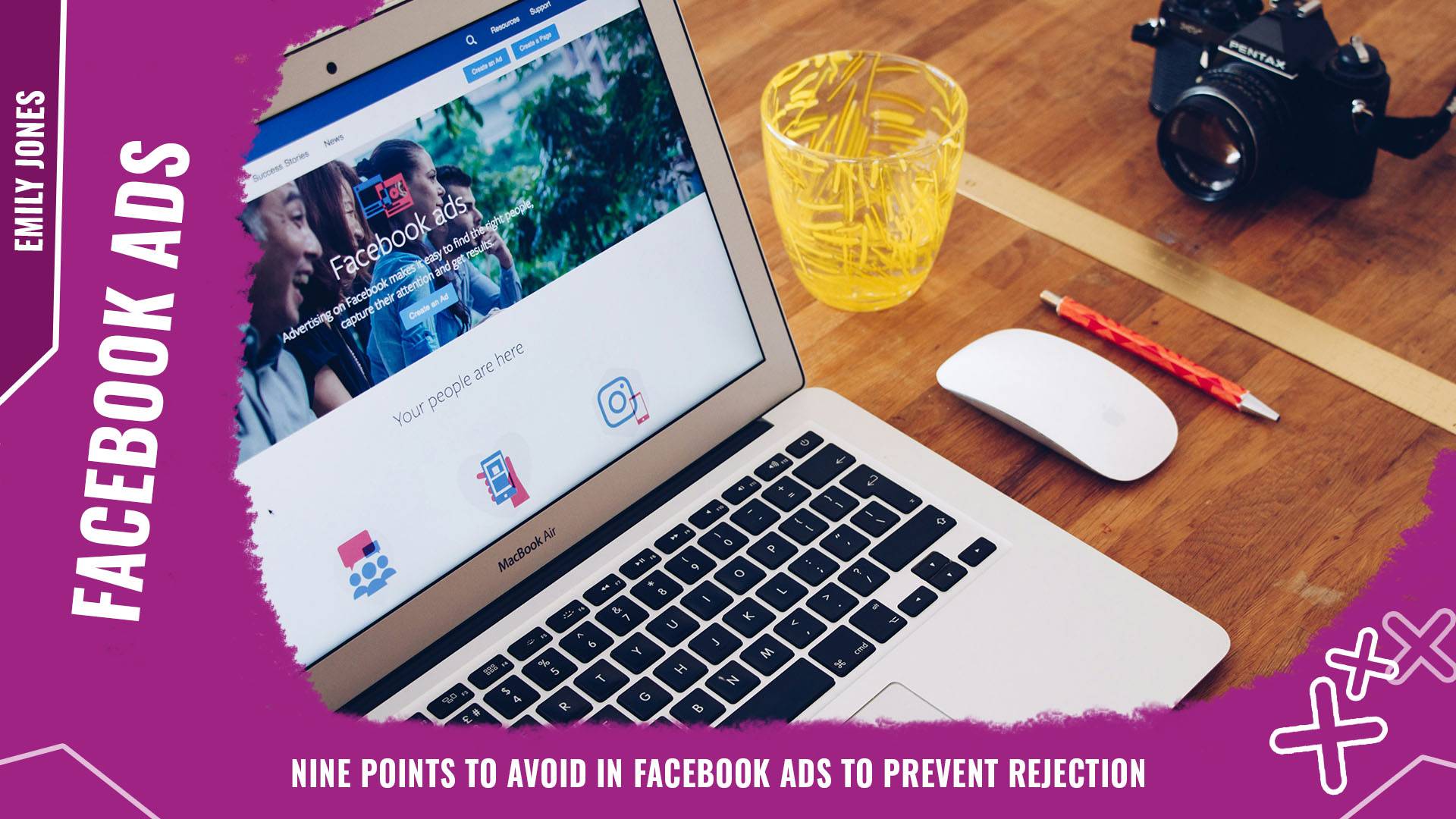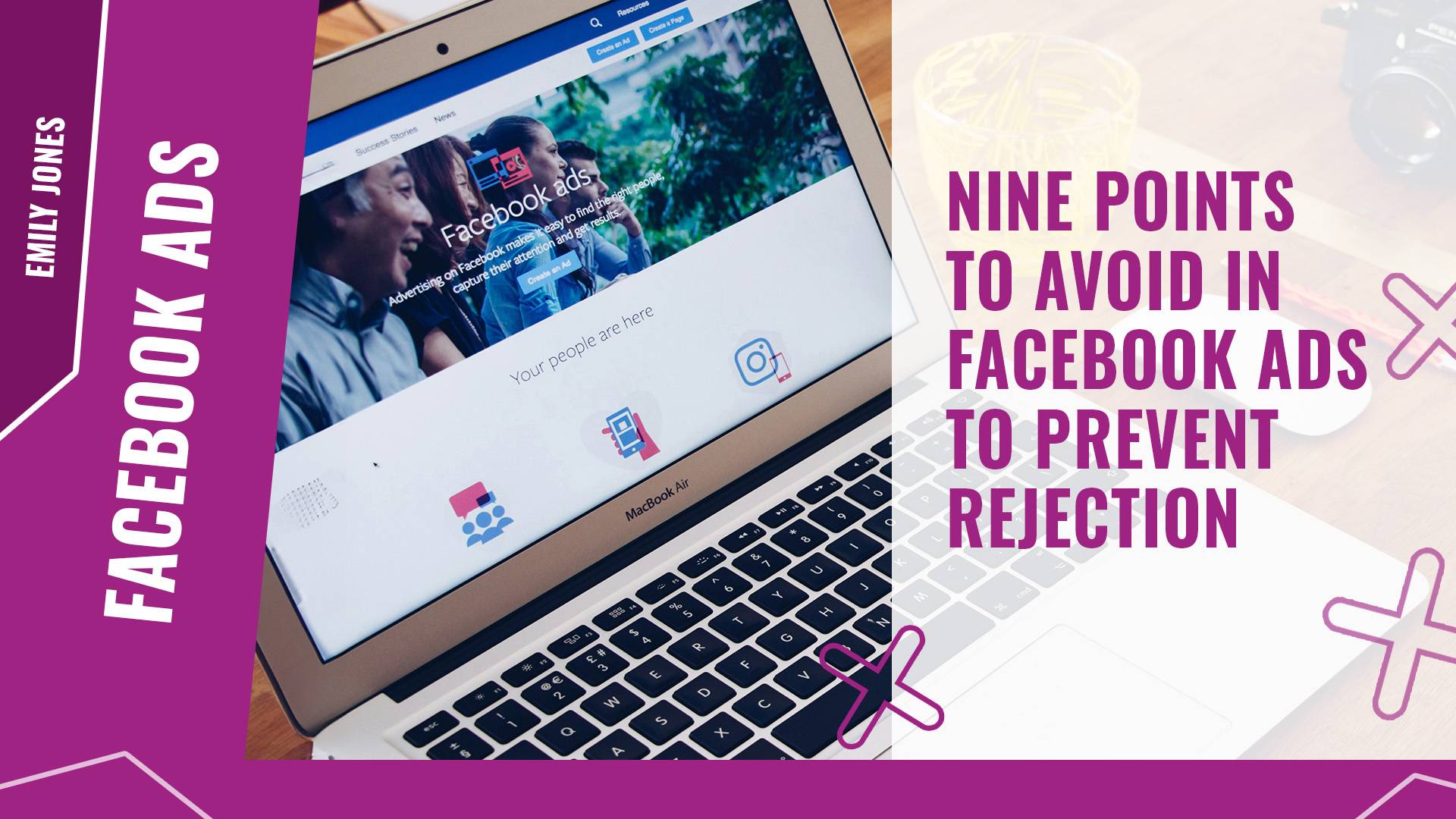Let’s face it – setting up Facebook Ads can seem like a minefield! With so much to set up and consider, when you finally hit the ‘Publish’ button, the absolute last thing you want is to then receive the dreaded notification that your ad has been rejected for violating policies.
While Facebook can reject your ads for a multitude of reasons, and sometimes it is without cause, below are some common points to avoid including in your ads – both in the copy and the creative, as Facebook can analyse your imagery too – to help you avoid a potential rejection.
Money
Approaching money in ads can be difficult, and in fact, there’s a whole special ad category dedicated to financial services, where companies in that sector are required to submit their FCA authorisation before being allowed to run ads.
However, on a more general level, while the topic of money itself is allowed, you must be careful in how you approach this. Let’s say you’re running a webinar on how to run successful Facebook Ads, for example, and you’re promoting this with ads. You wouldn’t be able to say “You’ll earn £1000s if you sign up and follow these techniques!” – this isn’t something you can guarantee, and could be considered a false claim. You could work around this by saying statements like “you’ll discover the techniques we used that earned our clients £1000s”, however, as this is truthful.
Timeframes and being too good to be true
Very similarly to money, again, you need to avoid making any potential promises you can’t keep with giving timeframes, which means you can’t say “within X months, you could be doing this!” If you’re running a six-week fitness course, for example, you can of course say the course is six weeks, but you can’t say that people will drop two dress sizes in six weeks – as this is something you can’t guarantee.
Tying in with timeframes is making other bold statements that are, quite simply, too good to be true – are your hair supplements really going to cure male pattern baldness, or are they simply going to help reduce hair loss?
Too good to be true claims will flag up as being deceptive or misleading, and typical areas for these claims are in the finance and health spheres. The general rule of thumb should be that if you can’t guarantee it, don’t promise it!
“You”
Using “you” in itself is perfectly acceptable within your ads; however, it needs to be carefully worded. This is because Facebook doesn’t like to be seen as too Big Brother-y and all-knowing, so you can’t make statements like “are you paying too much for your energy bills?” or “do you need to lose weight?” These could make people question how you know that information – while Facebook’s tracking and profiling capabilities are vast and scarily accurate, it doesn’t want people to know that!
While some ads manage to slip these phrases through the net, it’s best to take a more passive approach to avoid rejection. An example could be “Two million people in the UK are overpaying on their energy bills – don’t be one of them!”
CAPSLOCK
It’s a common misconception that CAPSLOCK should absolutely be avoided at all costs within ads, but this isn’t the case. While you can capitalise SOME words in your ad copy for EMPHASIS, don’t capitalise more than a couple of words, else it will look spammy and will make your ad hard to read. The human eye isn’t trained to read all in caps, and IF EVERYTHING IS EMPAHSISED, NOTHING IS EMPHASISED!
Profanity
It may seem obvious, but avoid swearing in your ads. You may be able to get away with some carefully placed asterisks or emojis, but try not to do this too much and consider whether it is essential.
Sex/nudity
Again, this one may seem pretty obvious, but sex and nudity does go against Facebook’s policies. However, even ads that aren’t necessarily focused on nudity or sex can be rejected depending on the flesh content in the creative – many female personal trainers, for example, have had their ads rejected due to the amount of skin on display in a sports bra, which Facebook’s filters have automatically triggered as nudity. Requesting a manual review in this instance should clear it up, but you may want to consider the amount of skin/flesh tones in your ad creative if you want to avoid liaising with Facebook’s support team.
Covid
Another one that may seem obvious, but avoid mentioning Covid in your ads – this will flag in Facebook’s filters. You may have seen that organic posts that mention Covid have to be fact checked by Facebook, and have a disclaimer on them – it’s a tricky topic to navigate and much easier to avoid altogether where possible. Discouraging people from getting vaccines is also a hard no-no that will be rejected.
Unexpected landing pages
When setting up your ads, make sure that your landing pages are suitable and relevant to the content of the ad. Any landing pages Facebook deems as having misleading, irrelevant or disruptive content will be rejected.
While this rule is aimed more for people who may attempt to use ads maliciously to mislead people to clicking onto a particular website, as a general rule to encourage conversions on your ads, try to ensure your ads are taking people to a relevant landing page, where they are being geared to take one action and one action alone (be that purchasing a product or signing up to a webinar, for example) and not your home page, where they will be bombarded with all sorts of information and have too many choices in front of them – which may prompt them to not make any decision at all!
Using copyrighted content
Make sure when you’re putting together your ads that you’re either using original content or copyright-free or stock imagery, videos or music. If you’re endorsing another brand or using copyrighted content that isn’t your own, you must have permission to do so. Using copyrighted music is a common downfall of many advertisers – unfortunately, no matter how catchy and popular a song in the charts may be, you can’t use it unless you have permission!
If you find yourself frazzled by the world of Facebook Ads, we here at Engage Web can set up and manage your campaigns for you – get in touch with us to learn more.
- How to speak directly to Meta Business Support - January 30, 2026
- ChatGPT to introduce paid advertising - January 27, 2026
- Google unveils AI-powered tools to transform online shopping - January 16, 2026




